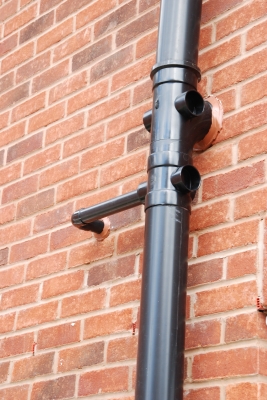PVC will never decay? – what rot
Entropy is the scientific theory that explains the random molecular disorder of the universe. Living things apparently combat this by creating temporary order out of the chaos. But everything else is in an inevitable state of decay.
Inevitable decay is not something you will hear much about from building materials salesmen, who prefer the idea that their products will last forever. Adverts for PVC replacement windows and cladding, for example, often give the impression that the material is “maintenance free”, and, for the scientifically uneducated, this must sound like a wonderful thing. Unfortunately, it is not true.
The idea that a building might survive without maintenance is a seductive one, especially for the millions of people who embarked upon home-ownership simply because they couldn’t find anywhere decent to rent. But finding themselves with the huge financial responsibility of a mortgage, they would rather not then be told that they should be spending between two and five percent of the value of their homes every year on keeping them in basic good order. They might quite fancy the idea of splashing out on a “Changing Rooms” – style makeover of the bedroom or lounge, but spend a thousand quid on scaffolding, overhauling the roof, and painting the outside joinery? You must be joking. Nobody at the Building Society warned them about that . Hence the attraction of the “maintenance free” PVC option.
A recent reader’s letter describes a typical scenario. The reader lives in a fairly modern purpose-built block of flats, and someone on the residents’ committee has decided that, in order to “reduce maintenance costs”, all the windows, fascias and soffit boards should be replaced with PVC, at an estimated cost of over £100,000. The current annual amount they are spending on exterior maintenance is, of course, zero, because the windows, fascias and soffits have not actually been painted since 1976.
Imagine if we adopted the same approach to our clothes. Or teeth. Don’t bother to clean them or look after them. Just let them rot away and then buy some plastic ones. Society would judge anyone who behaved like this as foolish, or deranged, or both. They would be sent for psychiatric counseling and their children would be taken away from them. But when it comes to the buildings that we live in, it seems to have become socially acceptable to allow them to rot.
The PVC salesmen exploit this inertia by reassuring us that it is really alright to neglect our homes. It is not out fault that the windows have rotted, they say; it is because they were made from that pesky old-fashioned stuff called wood. Time to get modern and use space-age materials that will last forever.
Only they won’t. I have previously explained in this column why sealed double-glazed window units are all doomed to eventually mist up between the two panes. And the law of entropy means that the PVC frames themselves will also decay. PVC inevitably becomes discoloured, and brittle, and, because of its high thermal expansion coefficient, it can even crack. This last problem is especially common in PVC replacement fascias and soffit boards, which need very careful fixing and – dare I say it – maintenance? – if they are to remain intact for more than a few years.
But however it is treated, PVC has a very definite life expectancy, whereas timber, being a living thing, can last for centuries. It just needs a bit of tender loving care to keep the entropy at bay.





